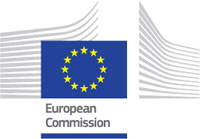In January of 2014, the European Commission paid a Dutch research company named Ecorys €360,000 to determine whether or not copyright infringement negatively affects legitimate sales of media. But once the study was finished, the commission failed to publish the results, probably because only a small part of the study supported their preconceived ideas about piracy.

The study might not have come to light if the one member of the German Pirate Party in the European Parliament hadn't filed a document request through the European Freedom of Information Act. This member, Julia Reda, posted the Ecorys study on her personal blog.
So what were the conclusions of the study? Ecorys could find no overwhelming evidence that online copyright infringement negatively affects sales. “In general, the results do not show robust statistical evidence of displacement of sales by online copyright infringements. That does not necessarily mean that piracy has no effect but only that the statistical analysis does not prove with sufficient reliability that there is an effect.”
There was one exception, where new blockbuster movies were likely to be affected adversely. “The results show a displacement rate of 40 percent which means that for every ten recent top films watched illegally, four fewer films are consumed legally.”
The only mention of the study came from two members of the EU Commission in an academic paper, where they used the data about the blockbuster films, but failed to mention the main results of the study and didn't even disclose that this information came from the Ecorys research.
You can read more about the research on Julia Reda's blog.
















